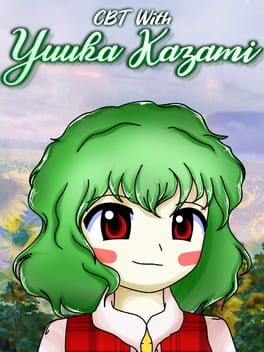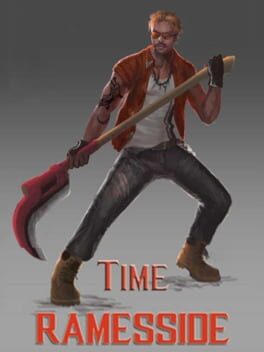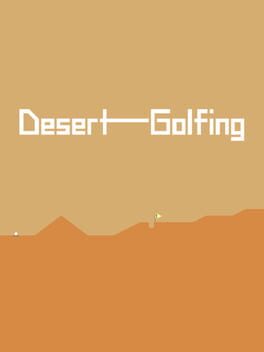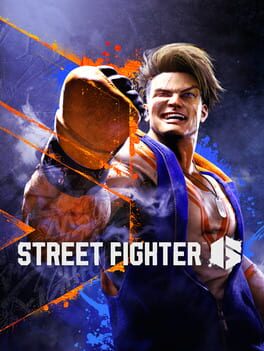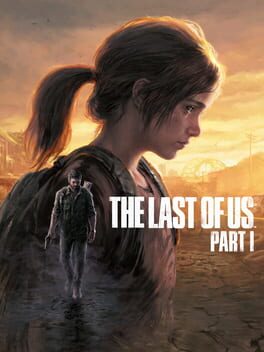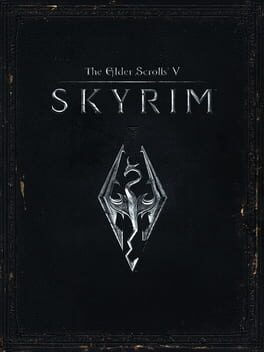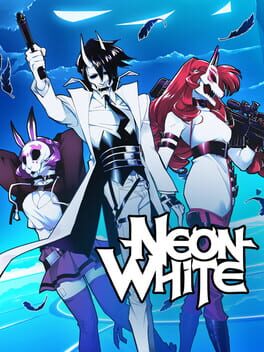trustworthym
71 Reviews liked by trustworthym
Balatro
2024
Balatro
2024
Super Mario 64
1996
Desert Golfing
2014
Street Fighter 6
2023
The biggest video game mystery of the past decade. It's the most groundbreaking, medium-redefining experience of our generation - and nobody can explain why. I'm convinced this is all a conspiracy orchestrated by YouTube video essayists. The promise (yet unfulfilled) of The Great Open World Video Game blinds us to the fact that we've seen all of this many times before.
Fundamentally, Breath of the Wild is a pastiche of the safest, most focus-tested game design principles of the preceding decade. You could call it the 'Tower' type game. Climb a tower to unlock a new area on your map, which will reveal the repeatable skinner box activities you can complete there. Puzzles, dungeons, enemy camps, the usual. These activities give you something like XP, increased health, or a new item, which account for progression. Once you're done, you climb another tower and repeat the process until you're ready to fight the final boss (or more likely, until you're bored and ready to rush to the game's end).
That's the gameplay loop. And like every single other one of these games ever made, the loop eventually becomes a dull grind. Breath of the Wild does nothing to solve this problem endemic to open world games. Some have praised the game's traversal, which, other than shield surfing (which is cool to be fair), is really just climbing walls, riding a horse, using a glider, or fast travelling; the same traversal methods in Assassin's Creed: Brotherhood, released seven years earlier (Shadow of the Colossus is also a clear influence). Really I would challenge anyone to explain how Breath of the Wild is a masterpiece while Assassin's Creed is a soulless corporate product. You're playing the same game. What's the difference besides some nice vibes and a cell-shaded art style? Grass? At least Assassin's Creed has that cyberpunk meets ancient aliens meets secret societies meets historical fiction bullshit made up by French people. That's creativity.
Proponents of the game may praise the Shiekah slate physics abilities as an innovation, and that feels true at first. But eventually your enemies become too powerful for hitting them with rocks or whatever to do a thing; you'll need to use some bullshit level-scaled RPG weapon. And even if the Shiekah slate remained effective in combat, you would still end up doing this. Why? Because this game has so much dull, repeated content to wade through that it becomes easier to take the path of least resistance, the least thought required, and just hit them with your sword. 30 hours in, no player is using cool Shiekah slate tricks to clear those regenerating bokoblin camps.
Much discussion has already been had on the monotony of the 120 copy-pasted shrines, which make up the bulk of the game's content (its version of the side tasks from Assassin's Creed), and the 900 copy-pasted korok seed puzzles, which act as the collectibles obligatory of every Tower game. I won't rehash that too much here, copy-pasted content is already the most common criticism of open world games in general. But knowing that, I want to talk about something I've noticed with a lot of the praise for this game.
Some of the most common sentiments expressed toward Breath of the Wild are that it's "magical" and captures the "joy of discovery" and a sense of "childlike wonder". And I think if you play through the entire game and still feel this way, then that is a horror beyond comprehension. What was your childhood like? Did you spend it as a laboratory subject or something? Just completing mundane, repeated tasks and being awarded food pellets? Because that's what Breath of the Wild is: a world filled not with a sense of mystery or infinite possibility, but the exact opposite: A world where you know exactly what you will find under every rock, inside every strange ruin, over every next hill. A completely controlled, sterile environment of utilitarian systems for the player to exploit. Completely antithetical to anything "magical".
I think there's a pretty strong argument to be made that video games fundamentally cannot represent anything magical, emotional, or spiritual. Depicting anything in interactive form drains it of all sacred meaning, makes it a joke; it's the "press f to pay respects" problem. The tenets of game design stipulate systems and mechanics that are rational and understandable to players. That might be the biggest sin of video games as an artistic medium: taking everything unquantifiable and beautiful in life and reducing it to man-made systems for a single individual to exploit (For more discussion of this issue, play the Metal Gear Solid series).
This is felt especially harshly in a Tower game like Breath of the Wild, where an entire open world is reduced to a few classes of interactive activities. Progressing through a game like this is a process of total disillusionment with the entire world; spiritual death. It accidentally replicates the central theme of Ocarina of Time: the transition from idyllic childhood to grim adulthood. But Ocarina ends with Link confronting the darkness of adulthood and returning to a childlike state of play with his adult wisdom integrated. Breath of the Wild, though, is a state of permanent adolescence - it never goes anywhere, and simply decays over time. Eventually, you exhaust all of this life's possibilities and choose to finally, mercifully end it. Deciding to face Ganon isn't about bringing the story to a climax; it's the gameplay equivalent of taking a plane to Switzerland to get euthanized. And the game practically spits in your face after you defeat him, simply reverting to an old save before the final fight. There is no salvation, no redemption for this world. Only the ceaseless march of content.
Early on I said this game's reputation is a mystery, and I actually lied; there's a pretty simple explanation, one that I briefly mentioned:grass vibes. The game has an incredible atmosphere when you're first starting out, and that's what people are talking about when they call it "a breath of fresh air" or whatever cliché they think of. It has nothing to do with any game design element found here. Because there is no common understanding of what that would even mean. There's no concept of the formal elements of game design, or the storytelling language of video games. We're all just making this shit up.
People only pay attention to, y'know, the actual art: music, animation, visuals. The game itself can be anything, nobody really cares. The discourse surrounding games as a medium of art in themselves is mostly bullshit. People appreciate the traditional artistic aspects of a game (music, animation, visuals, acting performances, writing) and then project that sense of artistry onto the game design itself, where there is none (and in fact, there is a profound dissonance between it and those elements). That's how people process games as an art form. And that's why games like Breath of the Wild are held up as the pinnacle of games as art.
(I'll also say that I have no respect for any open world game like this after the release of Metal Gear Solid V (2015). It correctly portrayed this breed of AAA open world game as something that cannot be revived or rejuvenated as Breath of the Wild attempts to do; this is all salted earth. If MGSV had been properly understood, we would have seen it as the just and merciful execution of games like this.)
Fundamentally, Breath of the Wild is a pastiche of the safest, most focus-tested game design principles of the preceding decade. You could call it the 'Tower' type game. Climb a tower to unlock a new area on your map, which will reveal the repeatable skinner box activities you can complete there. Puzzles, dungeons, enemy camps, the usual. These activities give you something like XP, increased health, or a new item, which account for progression. Once you're done, you climb another tower and repeat the process until you're ready to fight the final boss (or more likely, until you're bored and ready to rush to the game's end).
That's the gameplay loop. And like every single other one of these games ever made, the loop eventually becomes a dull grind. Breath of the Wild does nothing to solve this problem endemic to open world games. Some have praised the game's traversal, which, other than shield surfing (which is cool to be fair), is really just climbing walls, riding a horse, using a glider, or fast travelling; the same traversal methods in Assassin's Creed: Brotherhood, released seven years earlier (Shadow of the Colossus is also a clear influence). Really I would challenge anyone to explain how Breath of the Wild is a masterpiece while Assassin's Creed is a soulless corporate product. You're playing the same game. What's the difference besides some nice vibes and a cell-shaded art style? Grass? At least Assassin's Creed has that cyberpunk meets ancient aliens meets secret societies meets historical fiction bullshit made up by French people. That's creativity.
Proponents of the game may praise the Shiekah slate physics abilities as an innovation, and that feels true at first. But eventually your enemies become too powerful for hitting them with rocks or whatever to do a thing; you'll need to use some bullshit level-scaled RPG weapon. And even if the Shiekah slate remained effective in combat, you would still end up doing this. Why? Because this game has so much dull, repeated content to wade through that it becomes easier to take the path of least resistance, the least thought required, and just hit them with your sword. 30 hours in, no player is using cool Shiekah slate tricks to clear those regenerating bokoblin camps.
Much discussion has already been had on the monotony of the 120 copy-pasted shrines, which make up the bulk of the game's content (its version of the side tasks from Assassin's Creed), and the 900 copy-pasted korok seed puzzles, which act as the collectibles obligatory of every Tower game. I won't rehash that too much here, copy-pasted content is already the most common criticism of open world games in general. But knowing that, I want to talk about something I've noticed with a lot of the praise for this game.
Some of the most common sentiments expressed toward Breath of the Wild are that it's "magical" and captures the "joy of discovery" and a sense of "childlike wonder". And I think if you play through the entire game and still feel this way, then that is a horror beyond comprehension. What was your childhood like? Did you spend it as a laboratory subject or something? Just completing mundane, repeated tasks and being awarded food pellets? Because that's what Breath of the Wild is: a world filled not with a sense of mystery or infinite possibility, but the exact opposite: A world where you know exactly what you will find under every rock, inside every strange ruin, over every next hill. A completely controlled, sterile environment of utilitarian systems for the player to exploit. Completely antithetical to anything "magical".
I think there's a pretty strong argument to be made that video games fundamentally cannot represent anything magical, emotional, or spiritual. Depicting anything in interactive form drains it of all sacred meaning, makes it a joke; it's the "press f to pay respects" problem. The tenets of game design stipulate systems and mechanics that are rational and understandable to players. That might be the biggest sin of video games as an artistic medium: taking everything unquantifiable and beautiful in life and reducing it to man-made systems for a single individual to exploit (For more discussion of this issue, play the Metal Gear Solid series).
This is felt especially harshly in a Tower game like Breath of the Wild, where an entire open world is reduced to a few classes of interactive activities. Progressing through a game like this is a process of total disillusionment with the entire world; spiritual death. It accidentally replicates the central theme of Ocarina of Time: the transition from idyllic childhood to grim adulthood. But Ocarina ends with Link confronting the darkness of adulthood and returning to a childlike state of play with his adult wisdom integrated. Breath of the Wild, though, is a state of permanent adolescence - it never goes anywhere, and simply decays over time. Eventually, you exhaust all of this life's possibilities and choose to finally, mercifully end it. Deciding to face Ganon isn't about bringing the story to a climax; it's the gameplay equivalent of taking a plane to Switzerland to get euthanized. And the game practically spits in your face after you defeat him, simply reverting to an old save before the final fight. There is no salvation, no redemption for this world. Only the ceaseless march of content.
Early on I said this game's reputation is a mystery, and I actually lied; there's a pretty simple explanation, one that I briefly mentioned:
People only pay attention to, y'know, the actual art: music, animation, visuals. The game itself can be anything, nobody really cares. The discourse surrounding games as a medium of art in themselves is mostly bullshit. People appreciate the traditional artistic aspects of a game (music, animation, visuals, acting performances, writing) and then project that sense of artistry onto the game design itself, where there is none (and in fact, there is a profound dissonance between it and those elements). That's how people process games as an art form. And that's why games like Breath of the Wild are held up as the pinnacle of games as art.
(I'll also say that I have no respect for any open world game like this after the release of Metal Gear Solid V (2015). It correctly portrayed this breed of AAA open world game as something that cannot be revived or rejuvenated as Breath of the Wild attempts to do; this is all salted earth. If MGSV had been properly understood, we would have seen it as the just and merciful execution of games like this.)
Those who see art as a shortcut to prestige have a very distorted idea of what is "prestigious" - Look Kojima, creating spiritual connections through eschatology, total genius -, And few of this horrible ilk exist like Neil druckmann or conrad roset. Guys who use the medium of video games as a platform to satisfy their hunger for prominence and recognition. and incidentally, along the way, dividing in a problematic way the reception and conception of "arthouse" and pop games
I'm not going to blame them for Little Nightmares being read as an empty and morbid trip, because before that there was Playdead with his Limbo.
Neither of the obsession with the tone and fixation with photorealism without a plastic sense more typical than seeing the pores of Nathan Drake's skin, but, God, how I would like a timeline in which Roset and Druckmann are considered the worst in a way unanimous. Because they may not be the worst in general in the horror pile, but their popularity exposes the sad reality that some are interested in video games being validated by those who do not appreciate them in all their aspects, and those who need them to carry an HBO series cosplay or Milanese exhibition box
____________________
the idea of how necessary any author was -beyond programmers- in videogames came to me for the first time playing Dragon Quarter "the shape of this game does not seem to be the product of chance or trends" said little Ardu at one time where he assumed that experimentation was the standard and the methodology to follow, the correct choice. Poor ignorant little Ardu.
In 2013 Little Ardu also said: "In the same year as Attack of the friday monsters, Drakengard 3, TW101, Proteus and Resogun... There is The Last of Us, this game that has enchanted me for its solidity and surprising humanity ( little Ardu didn't see that coming) but it's also the pinnacle of the formally conservative tv prestige show wannabe game type, which seems to be the way forward for pop games. mmmm maybe it's not that bad either? I mean it has overlapped many games that I consider better, but that always happens to me haha if one day justice will be done, but meanwhile, if the AAA are like that, maybe we will advance something "
Poor ignorant little Ardu.
I'm not going to blame them for Little Nightmares being read as an empty and morbid trip, because before that there was Playdead with his Limbo.
Neither of the obsession with the tone and fixation with photorealism without a plastic sense more typical than seeing the pores of Nathan Drake's skin, but, God, how I would like a timeline in which Roset and Druckmann are considered the worst in a way unanimous. Because they may not be the worst in general in the horror pile, but their popularity exposes the sad reality that some are interested in video games being validated by those who do not appreciate them in all their aspects, and those who need them to carry an HBO series cosplay or Milanese exhibition box
____________________
the idea of how necessary any author was -beyond programmers- in videogames came to me for the first time playing Dragon Quarter "the shape of this game does not seem to be the product of chance or trends" said little Ardu at one time where he assumed that experimentation was the standard and the methodology to follow, the correct choice. Poor ignorant little Ardu.
In 2013 Little Ardu also said: "In the same year as Attack of the friday monsters, Drakengard 3, TW101, Proteus and Resogun... There is The Last of Us, this game that has enchanted me for its solidity and surprising humanity ( little Ardu didn't see that coming) but it's also the pinnacle of the formally conservative tv prestige show wannabe game type, which seems to be the way forward for pop games. mmmm maybe it's not that bad either? I mean it has overlapped many games that I consider better, but that always happens to me haha if one day justice will be done, but meanwhile, if the AAA are like that, maybe we will advance something "
Poor ignorant little Ardu.
Signalis
2022
The phantom, exterior like fish eggs,
interior like suicide wrist-rags,
I could exercise you, this could be your phys-ed,
cheat on your man homie AGHHH I tried to sneak through the door, man! Can't make it, can't make it, the shit's stuck! Outta my way son! DOOR STUCK! DOOR STUCK! Please! I beg you! We're dead! You're a g-g-genuine dick sucker! boom
interior like suicide wrist-rags,
I could exercise you, this could be your phys-ed,
cheat on your man homie AGHHH I tried to sneak through the door, man! Can't make it, can't make it, the shit's stuck! Outta my way son! DOOR STUCK! DOOR STUCK! Please! I beg you! We're dead! You're a g-g-genuine dick sucker! boom
Spec Ops: The Line
2012
warning: political rant
This game is often criticized for its sorta hackneyed delivery of the "war is bad" theme and for making the player feel bad about actions they have no control over. But honestly, if you ask me, an American military shooter game that literally yells at and antagonizes its own player for liking American military shooter games is pretty cool and based, actually.
Like, I don't know man. I remember being a teenage gamer in America in 2012. I remember playing Call of Duty. I remember Call of Duty being "that game that all the boys play when they get together." I remember how, when the media talked about video game violence, they were pretty much specifically talking about Call of Duty (or sometimes GTA or Mortal Kombat or something). Regardless, American war shooters were all the rage and you couldn't escape talking about them, whether in praise or derision, whenever any topic concerning video games would come up.
One thing I don't remember hearing that much about though, and maybe this is just my experience, is how weird it was that all these shooting games were very obviously military fucking propaganda. Support for the military industrial complex is so incredibly ingrained within American society that the media will literally talk about how dangerous video game violence is to the youth without ever even entertaining the notion about how that violence glorifies modern imperialism or how it contributes to manufacturing the perceived necessity of foreign invasions. Game critique was so criminally underdeveloped that the only retort that gamers could come up with to "Do video games cause violence?" was "Actually, video games don't cause violence." Any further nuance about how this very specific glorification of military violence could, in fact, serve the interests of the state via its utility as recruiting material for impressionable young boys, needless to say, did not quite make it into the critical minds of teenage gamer bros at the time. So honestly, when Spec Ops: The Line came out and took an admittedly blunt hammer at issues like war hero worship and needless military intervention that even now, as a nation, we're still really bad at talking about, I actually found it refreshing.
I could ramble about politics for hours, and I haven't even really talked about the game at all...but honestly, so much has already been written about this game that I would literally just be making the same points other people have already made, but worse. Ultimately, the point is that Spec Ops: The Line hates you for liking Call of Duty and that's kind of awesome, in my opinion.
This game is often criticized for its sorta hackneyed delivery of the "war is bad" theme and for making the player feel bad about actions they have no control over. But honestly, if you ask me, an American military shooter game that literally yells at and antagonizes its own player for liking American military shooter games is pretty cool and based, actually.
Like, I don't know man. I remember being a teenage gamer in America in 2012. I remember playing Call of Duty. I remember Call of Duty being "that game that all the boys play when they get together." I remember how, when the media talked about video game violence, they were pretty much specifically talking about Call of Duty (or sometimes GTA or Mortal Kombat or something). Regardless, American war shooters were all the rage and you couldn't escape talking about them, whether in praise or derision, whenever any topic concerning video games would come up.
One thing I don't remember hearing that much about though, and maybe this is just my experience, is how weird it was that all these shooting games were very obviously military fucking propaganda. Support for the military industrial complex is so incredibly ingrained within American society that the media will literally talk about how dangerous video game violence is to the youth without ever even entertaining the notion about how that violence glorifies modern imperialism or how it contributes to manufacturing the perceived necessity of foreign invasions. Game critique was so criminally underdeveloped that the only retort that gamers could come up with to "Do video games cause violence?" was "Actually, video games don't cause violence." Any further nuance about how this very specific glorification of military violence could, in fact, serve the interests of the state via its utility as recruiting material for impressionable young boys, needless to say, did not quite make it into the critical minds of teenage gamer bros at the time. So honestly, when Spec Ops: The Line came out and took an admittedly blunt hammer at issues like war hero worship and needless military intervention that even now, as a nation, we're still really bad at talking about, I actually found it refreshing.
I could ramble about politics for hours, and I haven't even really talked about the game at all...but honestly, so much has already been written about this game that I would literally just be making the same points other people have already made, but worse. Ultimately, the point is that Spec Ops: The Line hates you for liking Call of Duty and that's kind of awesome, in my opinion.

